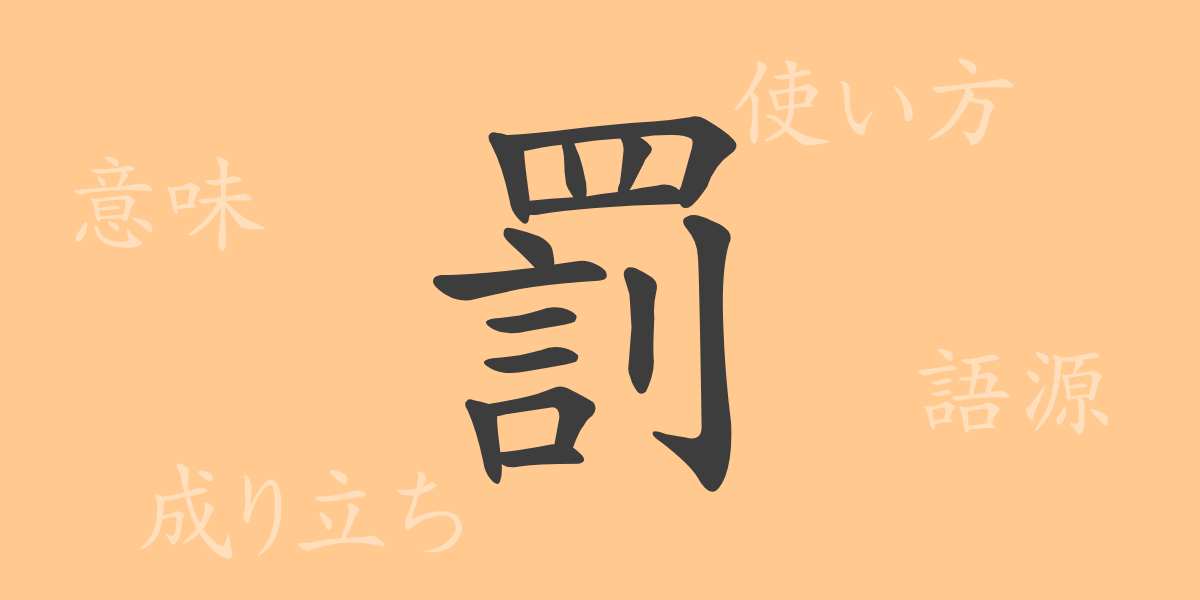The Japanese language contains many kanji, each with its unique history and meaning. The kanji “罰” (バツ, バチ) carries a particularly strong meaning, frequently used in the context of Japanese law, ethics, and everyday conversation. This article explores the origins, meanings, usage, pronunciations of “罰”, as well as related idioms and proverbs.
Origins of 罰 (バツ, バチ)
The kanji “罰” (バツ, バチ) originated in ancient China, composed of two parts: “罔” (モウ) meaning net, and “䚏” (シ) representing an arrow used as an indicator. These elements combine to form “罰”, symbolizing the act of catching with a net and indicating sin with an arrow, thus giving rise to the concept of denouncing sins and administering retribution.
Meaning and Usage of 罰 (バツ, バチ)
The kanji “罰” (バツ, バチ) signifies punishment or sanction imposed for violations or misconduct. In legal contexts, it is used as a penalty, commonly applied to those who break societal norms and rules. Morally, it also conveys the concept of divine retribution against actions that go against the laws of nature.
Pronunciation, Stroke Count, and Radical of 罰 (バツ, バチ)
Basic information about the kanji “罰” (バツ, バチ) is as follows:
- Pronunciation: On-reading is “バツ” (バツ), “バチ” (バチ), Kun-reading is “ばっする” (ばっする)
- Stroke Count: 12 strokes total
- Radical: 网部 (あみがしら)
Idioms, Phrases, and Proverbs Using 罰 (バツ, バチ) and Their Meanings
There are numerous idioms, phrases, and proverbs in Japanese that include “罰” (バツ, バチ). For example, “罰金” (バッキン) refers to a monetary penalty for violations, “天罰” (テンバツ) denotes punishment bestowed by gods or natural laws. Additionally, “罰則” (バッソク) refers to sanctions applied when rules or laws are broken, and “罰当たり” (バッタリ) is used to describe acts that defile something sacred.
Summary on 罰 (バツ, バチ)
The kanji “罰” (バツ, バチ), with its deep history, continues to play a crucial role in modern Japanese society. This character, representing the concept of punishment in law and ethics, serves as a foundation for maintaining social order and is ubiquitously used in our daily lives without us even realizing it. This in-depth exploration helps us to re-appreciate the significance of “罰” and the responsibility involved when applying it.

























